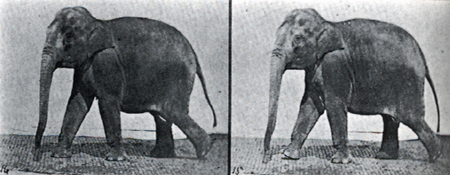 |
||
| Commemoration & Understanding | ||
| HOME The Art of Memory Origin Myth Vivid Imagery Memory Is Personal Your Inner Monty Python The Use of Places Poetry and Song The Grid System Why It Works The Number Mnemonic Free Ass-sociate Conclusion |
Plato tells the story, in his Phaedrus, of how Theuth came to the ruler of Egypt, Thamus, essentially hawking various arts and sciences. When he came to writing, Theuth expressed considerable enthusiasm, touting it as a great aid to memory, and recommending it highly to the king. Thamus was not so easily sold, however. This art, he said, after some reflection, was not a tool for memory, but for reminding—a big difference. Memory itself, he said, would diminish, and with it, wisdom. People would become, he said, even harder to get along with, because they will think themselves wise without really being wise. In hindsight, it’s hard to favor Thamus’s view. Literacy grants undeniable, countless advantages, and improves our lives in myriad ways. We would not want to be without it. But Thamus was right in one respect: All the knowledge available in books and encoded in the electronic aether will not function of its own accord. Reason and wisdom are properties of the user of knowledge, and all the information in the world will, in and of itself, not make us better or wiser at using it. Writing does not, indeed cannot, improve us. It is a gift to us, but it is not our gift. Wisdom and intellect need the training that comes from memory. Things learned, the influences in one’s life, need to be remembered, gathered together, organized according to some system or other, so that they are accessible, and so that they can be both commemorated and understood. Commemoration and understanding are parents of memory, whose destinies the offspring unites into a common purpose.
Eric Wargo, 10/2005 |
A few excellent historical sources on the art of memory:
Mary Carruthers, The Book of Memory (Cambridge, 1990) Mary Carruthers, The Craft of Thought (Cambridge, 1998) Frances A. Yates, The Art of Memory (1966, Pimlico) Frances A. Yates, Giordano Bruno and the Hermetic Tradition (1964, Chicago) |
All material copyright 2006
Eric Wargo